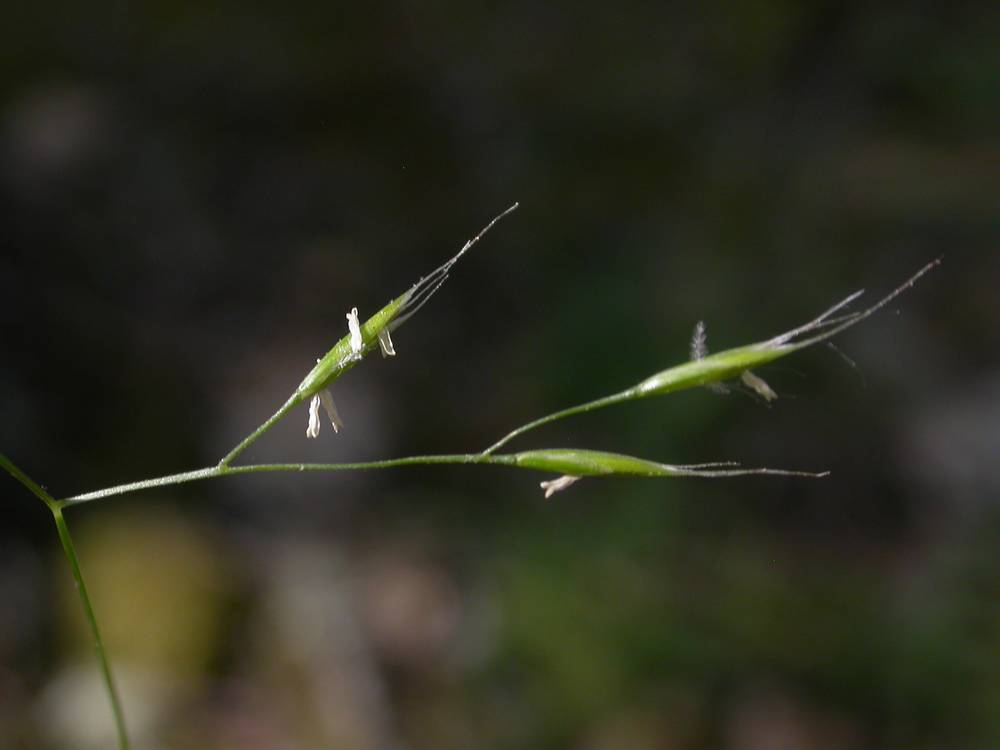Festuca occidentalis
Festuca hallii
western fescue
basal branching intravaginal.
mainly basal;
sheaths open, with overlapping margins, not conspicuously splitting between the veins during the first year;
collars glabrous;
ligules 0.1–0.4(0.5) mm;
blades (5)10– 20(40)cm × 0.3–0.75 mm, conduplicate; more or less lax, green;
inner surface with hairs;
outer surface glabrous, rarely minutely scabrous; flag leaves 3–12 cm.
5–20 cm;
branches spreading; the lowest usually reflexed at anthesis and remaining reflexed thereafter.
6–12 mm, with 2–5(7) florets.
hairy at tips only;
lower glumes 2–5 mm, 1-veined;
upper glumes 3–6 mm; (1)3-veined.
3–4.5 mm, densely hairy at the tip.
apex densely hairy.
(25)45–110 cm tall, densely cespitose, green.
cross sections 0.25– 0.6 × 0.35–0.75 mm; diamond-shaped or triangular;
veins (3)5– 7;
ribs 1(5); dorsal sclerenchyma bands less than twice as wide as thick.
4–6.5(8)mm, 0(1)-veined;
hairs near the tip only (rarely hairy throughout);
lemma awns 3–12 mm; some longer than the lemma body.
Festuca occidentalis
Festuca hallii
Mesic to dry forest, in shade or partial shade. 0–2400m. BW, Casc, CR, ECas, Est, Lava, Sisk, WV. CA, ID, WA; western US and Canada, Great Lakes region. Native.
Festuca occidentalis is a fine-leaved, forest-dwelling bunchgrass easily identified by the lemma awns that are longer than the lemma bodies. The only other fine-leaved fescue with densely hairy tips of the ovary and seed is subalpine, virtually awnless F. viridula. Similar Festuca idahoensis and F. roemeri have leaves that are oval, round, or hexagonal in cross section, with sclerenchyma bands more than twice as wide as thick. Festuca rubra has fused sheath margins and awns that are shorter than the lemmas.
Barbara Wilson, Richard Brainerd, Nick Otting
- Local floras:
BC,
CA,
OR,
WA
- Local Web sites:
CalFlora,
CalPhotos,
Flora NW,
PNW Herbaria
WildflowerSearch
iNaturalist (observations)
USDA Plants Database
- LBJ Wildflower Center
- SEINet
- Plants of the World Online
- Encyclopedia of Life
- Wikipedia
- Google Image Search



